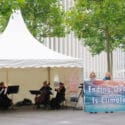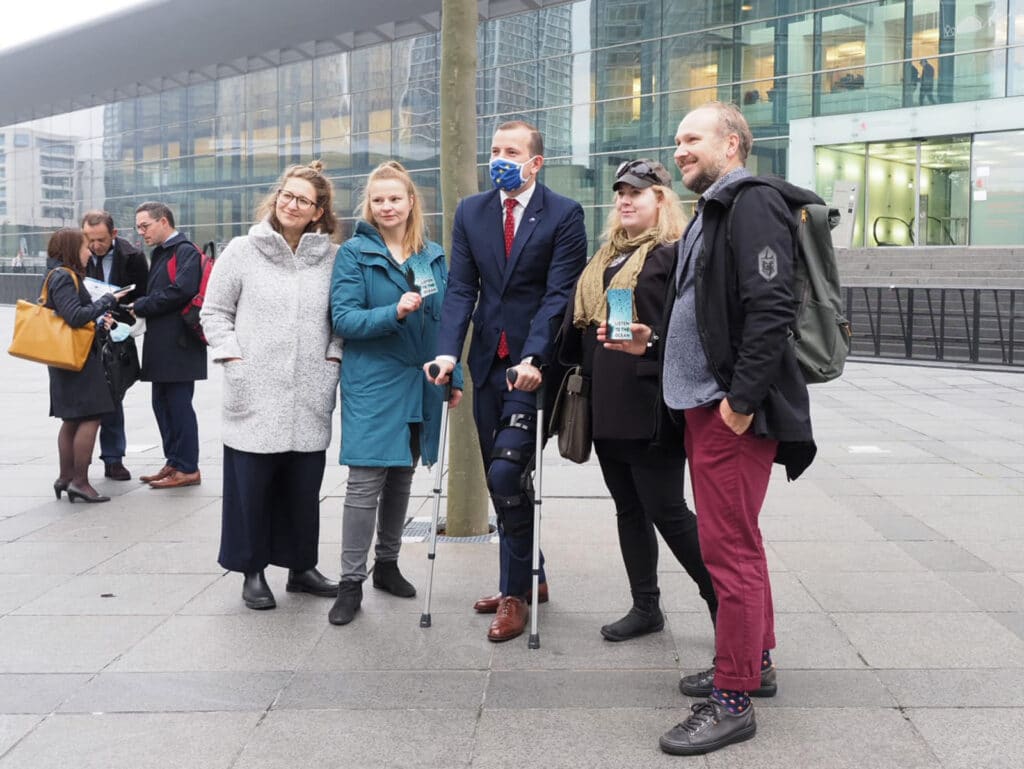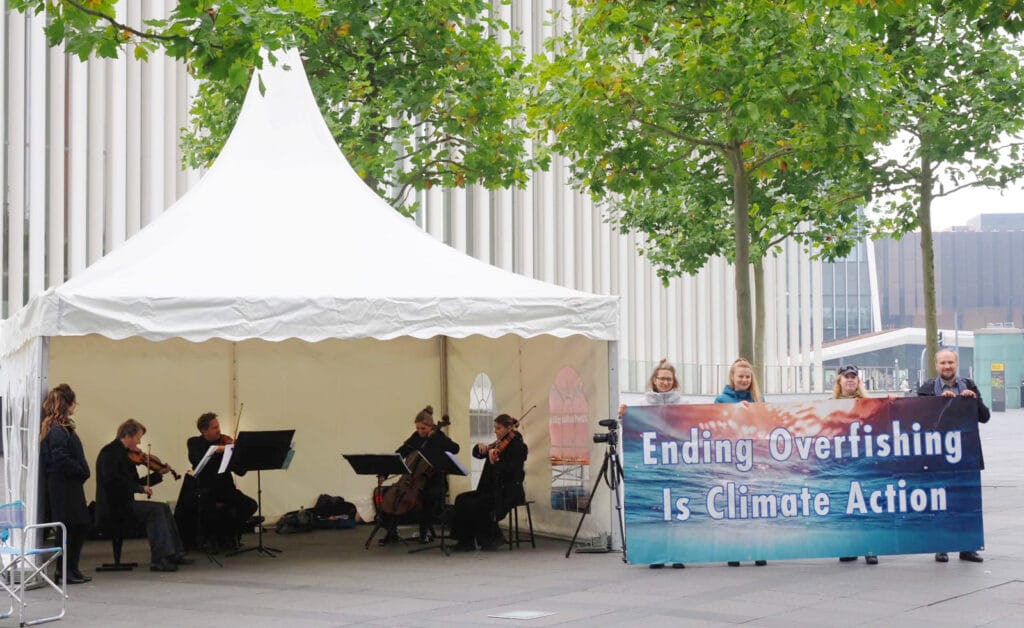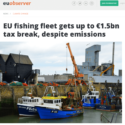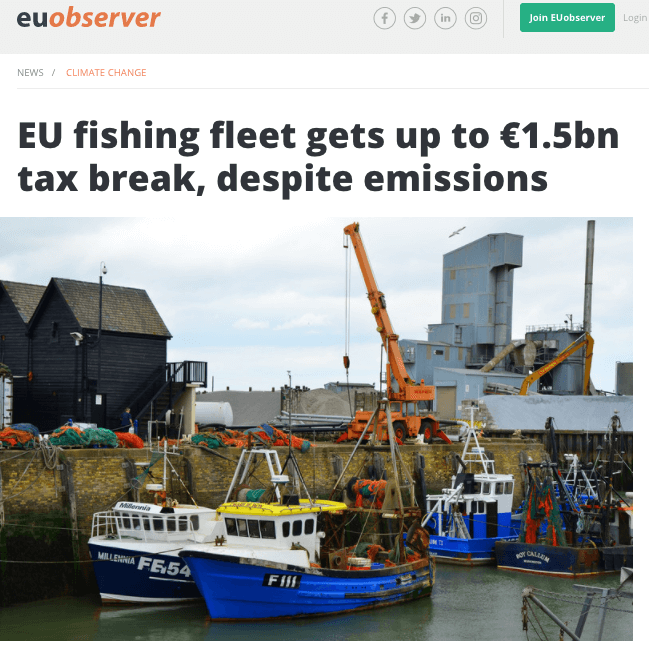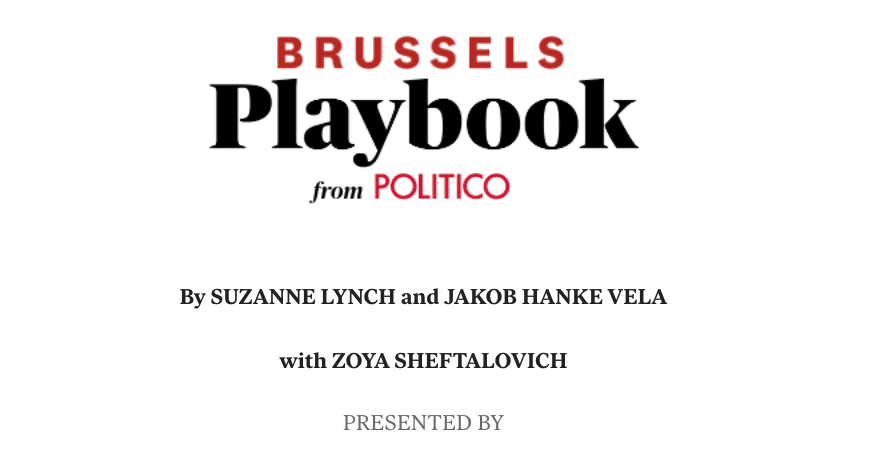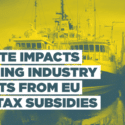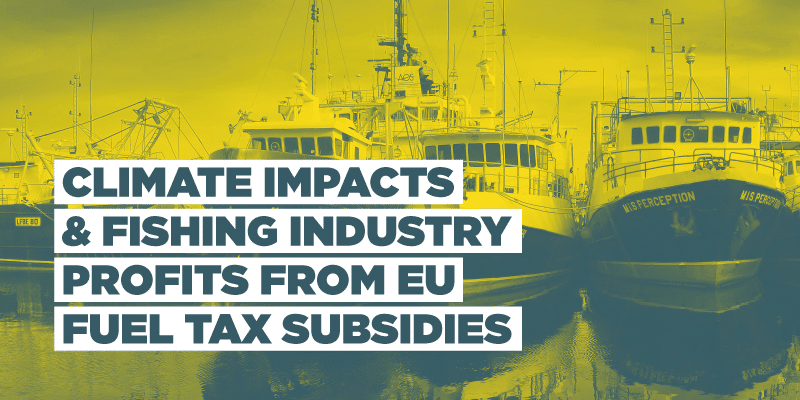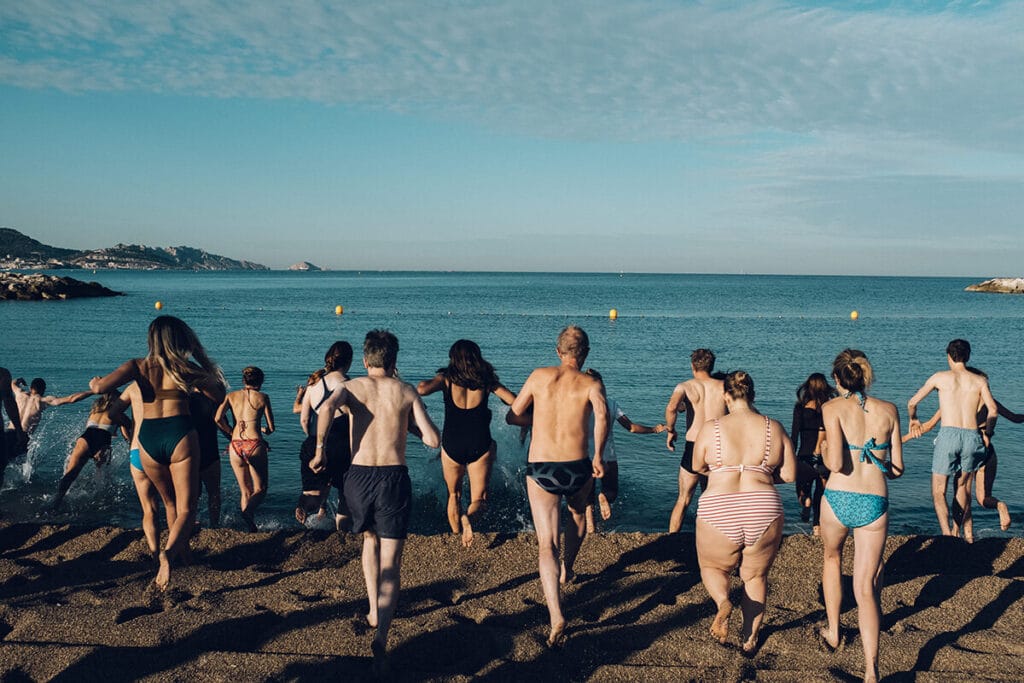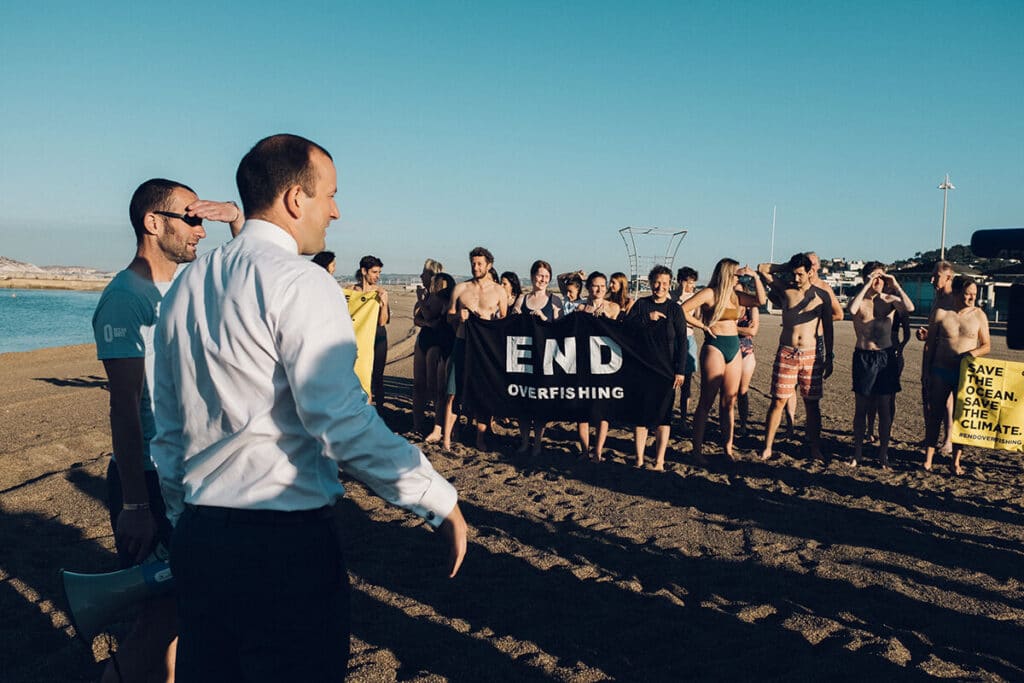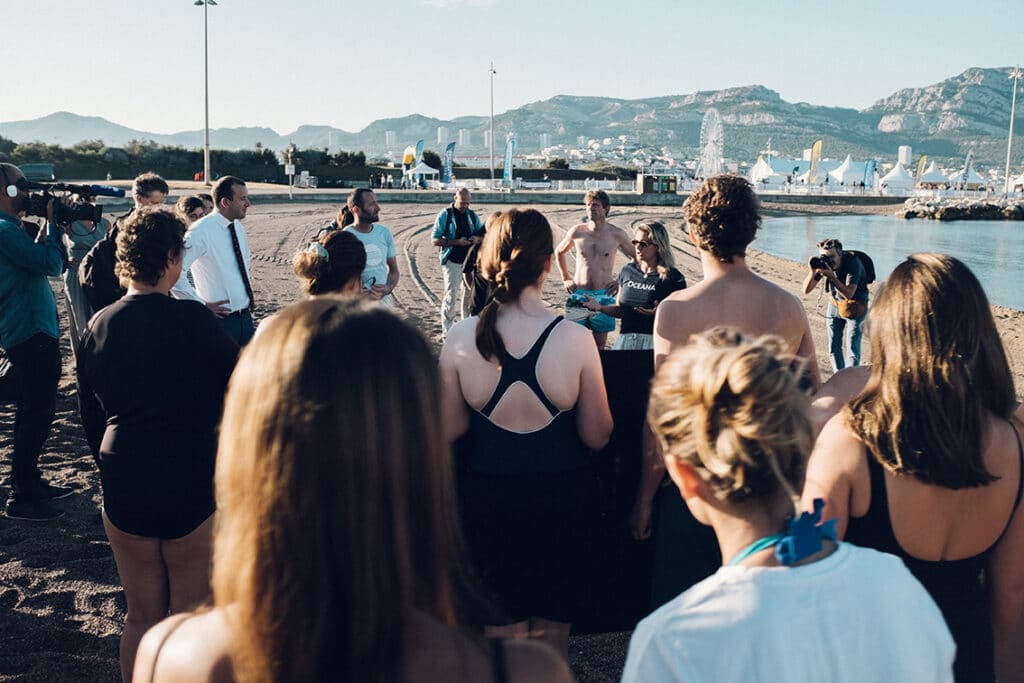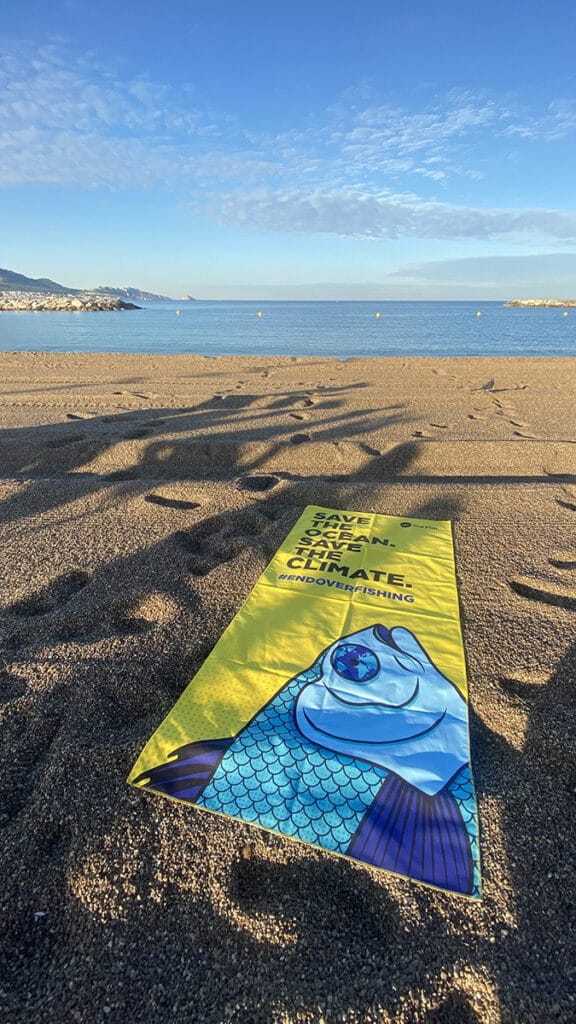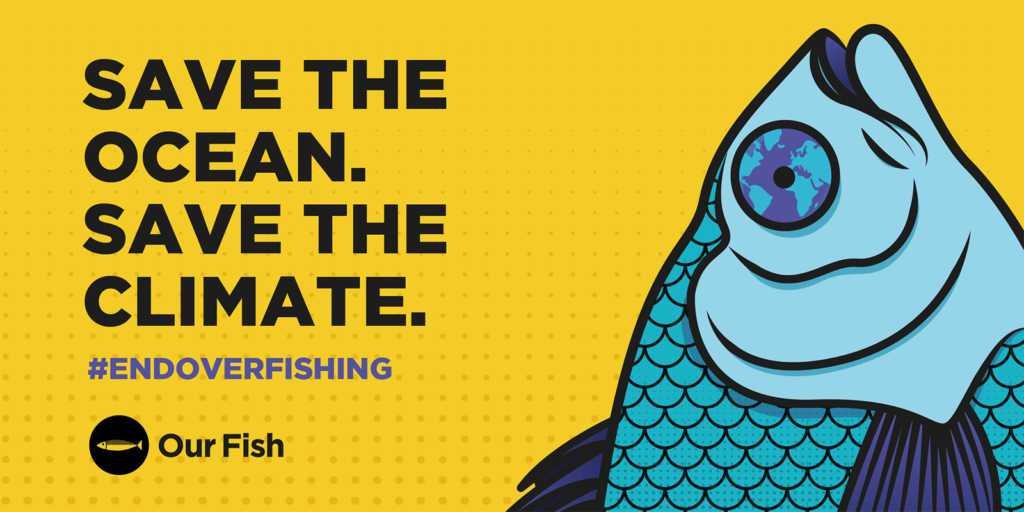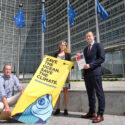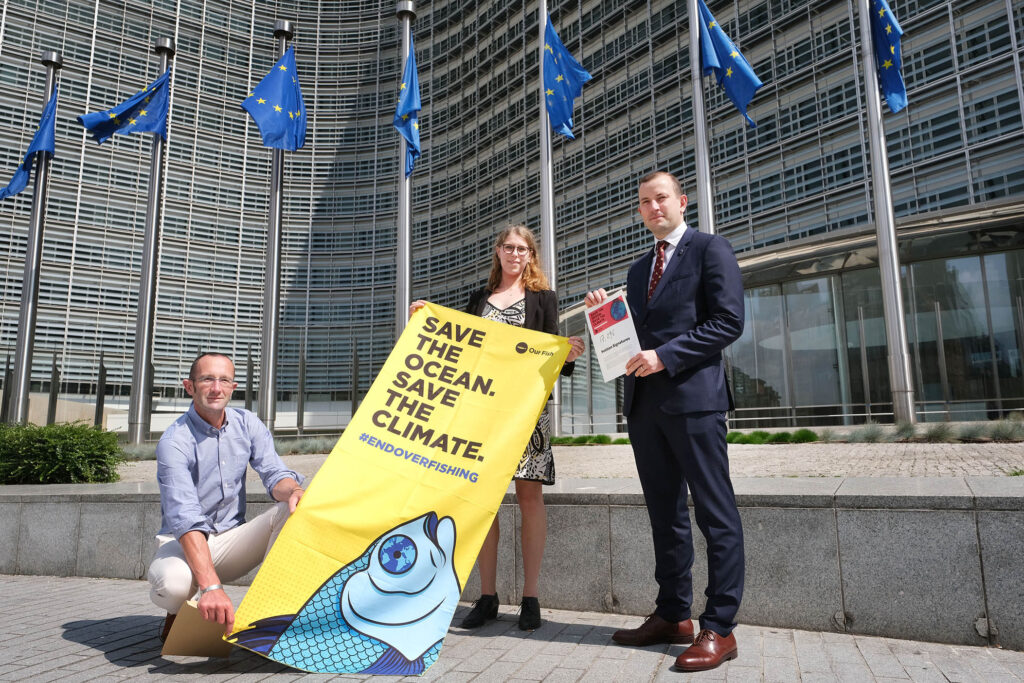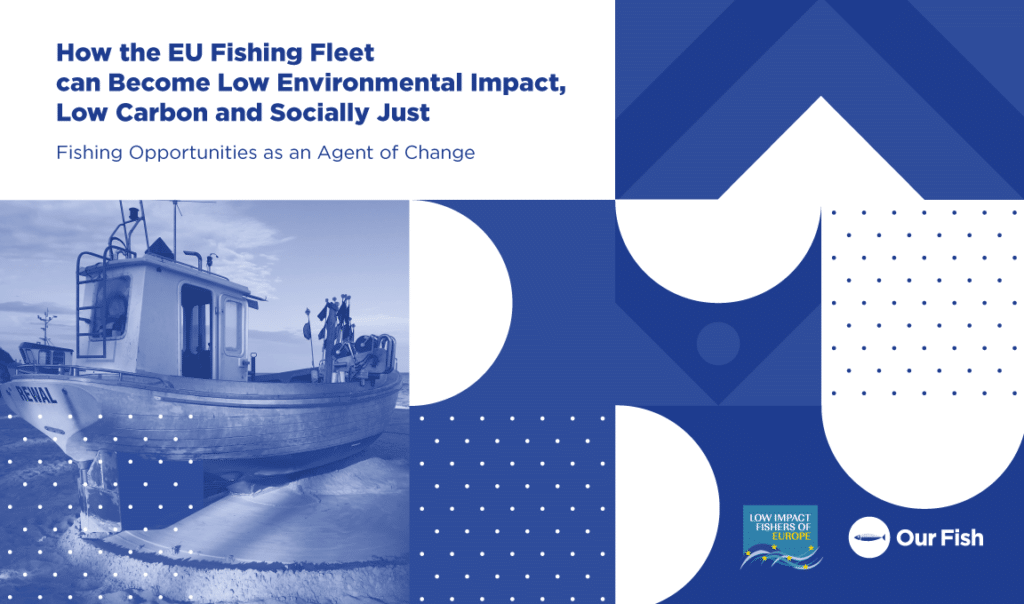
EU Holds Key To Just Transition to Low-Carbon, Low-Impact Fishing Industry – Report
Brussels, 26 October 2021:- The EU and its member states must transition to a more ecologically, socially and economically sustainable fishing industry – and already have the means to do so, according to a new report published today.
The report, How the EU can Transition to Low Environmental Impact, Low Carbon, Socially Just Fishing, published by the Our Fish Campaign and Low Impact Fishers of Europe (LIFE) finds that by activating Article 17 of the Common Fisheries Policy (CFP), and allocating fishing quotas based on transparent and objective criteria of an environmental, social and economic nature, the EU can achieve a just transition to a low-carbon, low-impact fishing fleet.
The report proposes criteria and processes which the European Commission and EU member states could harness in order to achieve this goal, such as the reallocation of an increasing share of the Total Allowable Catch (TAC) over a period of eight years, which should include prescribed minimum allocations of fishing opportunities to the small-scale low-impact fishing fleet, indicators such as use of selective fishing gear, marine seabed impact, carbon cycle impact and history of fisheries and environmental compliance.
“For many years, the systems used by Member States to allocate their fishing quotas have led to the concentration of fishing opportunities in the hands of a few big players, to the detriment of small-scale low impact fishers and the marine environment,” said Brian O’Riordan, Executive Secretary, Low Impact Fishers of Europe. “The current system is not fit for purpose, rewarding as it does those who fish the most. Rather we need a system that rewards those who fish the most sustainably and provide the greatest benefits to society.”
“The EU has several tools and processes at its disposal to right this historic wrong. Next year the European Commission must report on the implementation of the CFP, and this provides a once in a decade opportunity to reset European fisheries policy on a correct course, beginning with a just reallocation of quota”, continued O’Riordan.
“Ensuring a healthy ocean is a crucial component of humanity’s response to the climate and biodiversity crisis”, said Rebecca Hubbard, Programme Director with Our Fish. “The EU’s Common Fisheries Policy has the ingredients needed to realise a transformation of EU fishing to one that minimises impacts on protected species and marine ecosystems, increases carbon sequestration and maximises social benefits for coastal communities.”
“We just need to accelerate this transformation by incentivising good practice with priority access to quota and fish”, said Hubbard. “The European Commission can, and considering the current climate and biodiversity crisis, should, urgently help to accelerate this transition, while EU member states need to demonstrate political will and commitment to doing the necessary work to secure a healthy future for our fish populations and coastal communities”.
“Considering its numerous small scale fleet, with a significant part operating with low impact methods and with great social and economic importance, Portugal must be a leader member-state in the implementation of the Article 17”, said Gonçalo Carvalho, Executive Coordinator of Sciaena. “This will be a key element in enabling a transition to fisheries that contribute to safeguarding marine ecosystems and strengthening coastal communities.”
“France Nature Environnement supports the use of Article 17 of the CFP in order to move towards more sustainable fishing”, said Michel Morin, member of France Nature Environment’s expert fisheries working group. “The follow-up of scientific advice and the improvement of transparency in the allocation of quotas should be a priority, especially for small-scale fisheries.”
“There is a huge discrepancy between the current situation of fishing in France and the declarations of the European regulations in favor of fishermen such as ourselves who fish exclusively by line, and who meet all the criteria laid down in Article 17: contribution to the local economy, selective fishing gear, reduced impact on the environment, low energy consumption,” says Ken Kawahara, secretary of the Association des Ligneurs de la Pointe de Bretagne, “The situation regarding the allocation of fishing rights has not changed at all since 2013, and many small-scale fishing vessels still have to be content with fishing the few species that are allowed to them while some industrial trawlers have thousands of tons of quotas.”
According to the report, Spain has used some environmental and social criteria beyond the historical catches to allocate its quotas. “However, these are just exceptions,” explained Cecilia del Castillo, Fisheries Campaigner at Ecologistas en Acción. “Since Spain is currently drafting its new law on fisheries, it must do its best to include a more ambitious language and suitable criteria to ensure the implementation of article 17 of the CFP. Spain has now the opportunity to bet for a fair transition towards less harmful fisheries. This opportunity must not be wasted”.
“At the moment there is a lack of political will and clear procedures in the European Union to implement the common fisheries policy,” says Sascha Müller-Kraenner, executive director of the Deutsche Umwelthilfe in Germany. “The Common Fisheries Policy’s Article 17 gives fishermen who use environmentally friendly and sustainable fishing methods the first access to fisheries resources, instead of environmentally harmful fishing methods such as bottom trawling. The current biodiversity and climate crisis makes it imperative to act quickly: some fish populations are in such a poor condition that they can no longer be fished. Therefore we call on Germany’s incoming fisheries minister to finally implement Article 17 and to take ecological criteria into account when allocating fishing quotas.”
ENDS
Download the report:
- Download: How the EU can Transition to Low Environmental Impact, Low Carbon, Socially Just Fishing (full report)
- Download: How the EU can Transition to Low Environmental Impact, Low Carbon, Socially Just Fishing (executive summary)
- Download: Für eine umweltschonende kohlenstoffarme und sozial gerechte europäische Fischerei (Zusammenfassung DE)
- Download: Cómo la flota pesquera de la UE puede convertirse en un flota de bajo ambiental, baja en carbono y socialmente justa (Resumen ES)
- Download: Comment la flote de pêche de l’UE peut-elle devenir à faible impact environnemental à faible émission de carbone et socialement juste ? (Résumé FR)
Download Presentation:
Presentation: EU Holds Key To Just Transition to Low-Carbon, Low-Impact Fishing Industry
Contact:
Dave Walsh, Our Fish Communications Advisor, +34 691 826 764 press@our.fish
Sarah Namann, Marketing and Communications Officer, Low Impact Fishers of Europe (LIFE) communications@lifeplatform.eu
Cecilia del Castillo, fisheries campaigner at Ecologistas en Acción, Spain, +34 625 295 796, pesca@ecologistasenaccion.org
About Our Fish
Our Fish is working to end overfishing and restore a healthy ocean ecosystem. By collaborating with others, and deploying robust evidence, we are calling for an end to overfishing as a critical and significant action to address the biodiversity and climate crisis.
About LIFE
The Low Impact Fishers of Europe (LIFE) is a European wide organization of organizations uniting European small-scale fishers to achieve fair fisheries, healthy seas and vibrant communities. 5% of the EU fish catch is produced by small-scale low impact fishing, supporting 70% of the fleet and providing 50% of the jobs at sea.
Media Briefing, October 26, 2021:

